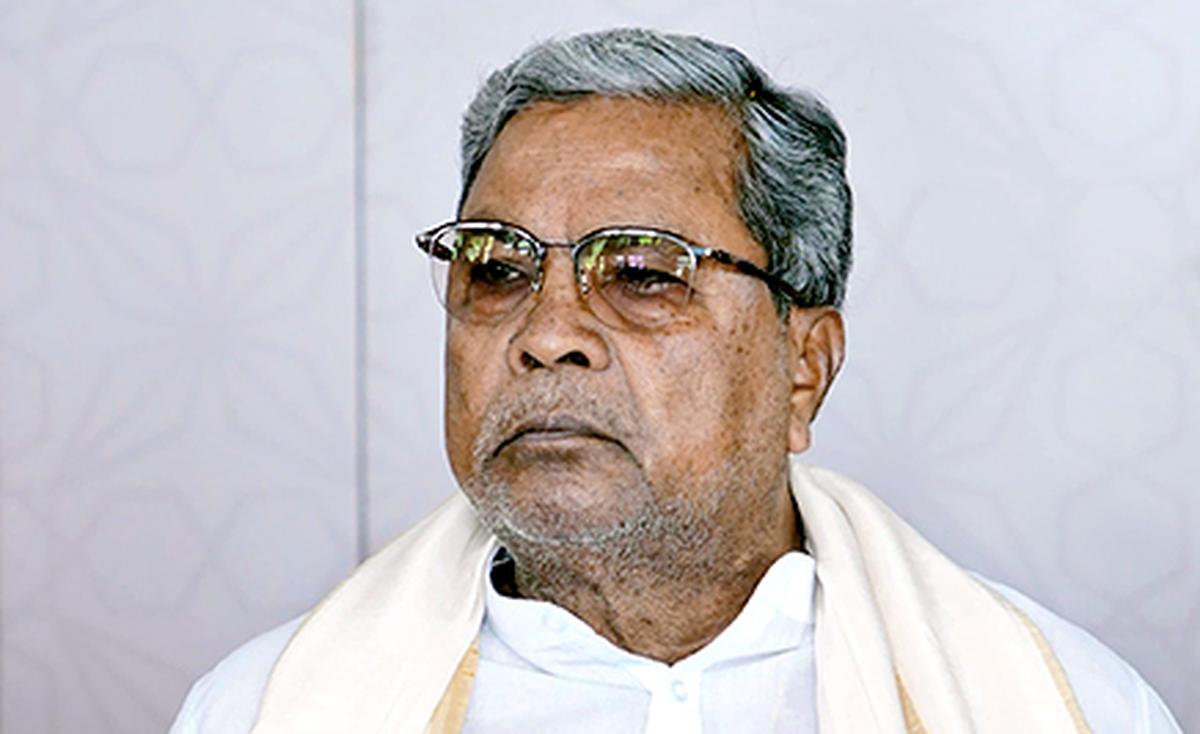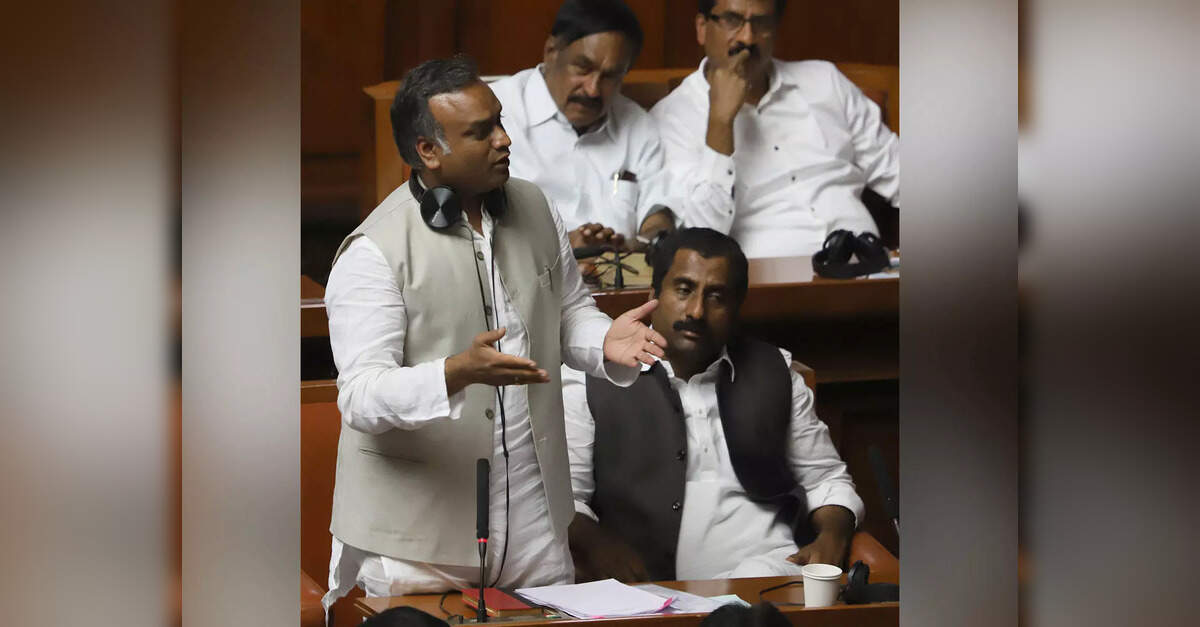The Chief Minister’s directive to study Tamil Nadu’s approach to RSS activities has sparked considerable discussion among Karnataka’s administrative and political circles. Officials are analyzing how Tamil Nadu manages ideological presence in government spaces without infringing on constitutional rights. The study aims to identify best practices that Karnataka can adopt, including guidelines for public events, monitoring mechanisms, and restrictions on using government premises for political or religious activities. Analysts believe this could serve as a model for establishing clear administrative protocols statewide.
Political reactions to the initiative have been sharply divided. While Congress leaders emphasize the importance of maintaining secular governance and preventing partisan influence in administrative offices, opposition parties have questioned the necessity of the study. They argue that Karnataka should focus on broader governance reforms rather than imposing restrictions on ideological organizations. This debate underscores the challenge of balancing political sensitivities with administrative neutrality in a diverse state.
Administrative officials have begun gathering data on Tamil Nadu’s existing regulations, focusing on legal frameworks, enforcement procedures, and case studies of compliance and violations. The Chief Secretary’s office is coordinating with various departments, including law, home, and education, to understand how guidelines can be adapted to Karnataka’s context. Officials stress that any policy must be implementable without disrupting ongoing government operations or infringing on individual freedoms.
Civil society organizations have welcomed the move, highlighting the importance of impartial governance. Many suggest that formal policies governing ideological activities could prevent misuse of government resources and reduce political tensions within public institutions. By referencing Tamil Nadu’s model, Karnataka hopes to create a framework that is legally sound, operationally feasible, and socially acceptable, ensuring administrative neutrality while respecting constitutional rights.
The study is expected to take into account potential challenges in implementation, including legal hurdles, public perception, and bureaucratic capacity. Experts have noted that while Tamil Nadu’s policies provide a useful reference, Karnataka’s larger size and political diversity may require tailored solutions. The report will likely recommend clear procedural guidelines, monitoring mechanisms, and channels for reporting violations to maintain accountability and transparency.
Political analysts suggest that the study may influence not only administrative policies but also the state’s broader political discourse. By formally exploring ways to regulate ideological activities in government spaces, the Siddaramaiah administration is signaling its commitment to secular governance. This initiative could strengthen public confidence in the impartiality of Karnataka’s institutions while providing a template for future policy-making.
The potential implications for public administration are significant. Clear guidelines could help prevent conflicts between elected representatives, bureaucrats, and ideological organizations, ensuring that government offices remain focused on service delivery. By codifying procedures, Karnataka could reduce discretionary decision-making and establish uniform practices across departments, improving accountability and minimizing political interference.
The directive has also prompted discussions about constitutional boundaries. Legal experts are analyzing how Tamil Nadu balances freedom of association with administrative neutrality, and whether similar measures can be applied in Karnataka. Any policy adopted will need to respect fundamental rights while ensuring that government resources are not diverted for ideological or political purposes, creating a careful balance between individual liberties and institutional integrity.

Training and sensitization of government staff may become a key component of the proposed policy. Bureaucrats and officials will need guidance on how to manage ideological activities, monitor compliance, and report violations. Experts suggest that awareness campaigns and workshops could help embed the principles of secular governance into day-to-day administrative practices, ensuring consistent implementation across the state.
The initiative is likely to have ripple effects in Karnataka’s political landscape. Parties and civil groups are expected to closely monitor the outcomes of the Chief Secretary’s study, using its findings to inform debates on governance, secularism, and administrative ethics. Analysts believe that a well-structured policy could help reduce partisan tensions in bureaucratic settings and enhance public trust in government functioning.
Community leaders and NGOs have shown interest in the potential reforms, emphasizing that neutral administrative spaces are crucial for equitable service delivery. Many note that ideological interference in government institutions can skew resource allocation, undermine transparency, and reduce citizen trust. By proactively studying Tamil Nadu’s framework, Karnataka aims to safeguard both institutional integrity and public confidence.
The study may also recommend monitoring and reporting mechanisms, including internal committees, complaint redressal systems, and periodic audits to ensure compliance. Such measures would help the government detect and address violations quickly, maintaining the credibility of administrative processes while ensuring that ideological activities do not compromise institutional neutrality.
Experts suggest that lessons from Tamil Nadu could inform other aspects of governance, including the use of government facilities for cultural, religious, or political events. By codifying restrictions and operational procedures, Karnataka could establish a clear boundary between administrative responsibilities and ideological expression, reducing potential conflicts and ensuring a more professional, impartial public service.
The initiative also raises questions about enforcement. Analysts argue that clear policies alone are insufficient without effective monitoring, accountability measures, and timely corrective action. Karnataka may need to invest in oversight mechanisms, designate responsible officers, and establish reporting protocols to ensure that the spirit of secular governance is upheld in practice.
Legal scholars emphasize the importance of transparent communication regarding any new policy. Public awareness campaigns explaining the objectives and scope of the regulations could prevent misunderstandings and reduce political tensions. By engaging stakeholders, including civil society, political parties, and bureaucrats, Karnataka can foster acceptance and cooperation for effective implementation.
The Chief Secretary’s forthcoming report is expected to outline both opportunities and challenges in adopting Tamil Nadu’s model. Recommendations will likely include procedural rules, monitoring strategies, and enforcement protocols, providing a roadmap for creating an environment where government offices remain secular, apolitical, and efficient.
Ultimately, the study represents Karnataka’s proactive approach to addressing emerging governance challenges. By learning from Tamil Nadu, the state aims to establish a framework that upholds secularism, ensures administrative neutrality, and strengthens public trust in government institutions. The policy, once formulated and implemented, could serve as a benchmark for balancing constitutional freedoms with practical governance imperatives across India.
Follow: Karnataka Government
Also read: Home | Channel 6 Network – Latest News, Breaking Updates: Politics, Business, Tech & More


